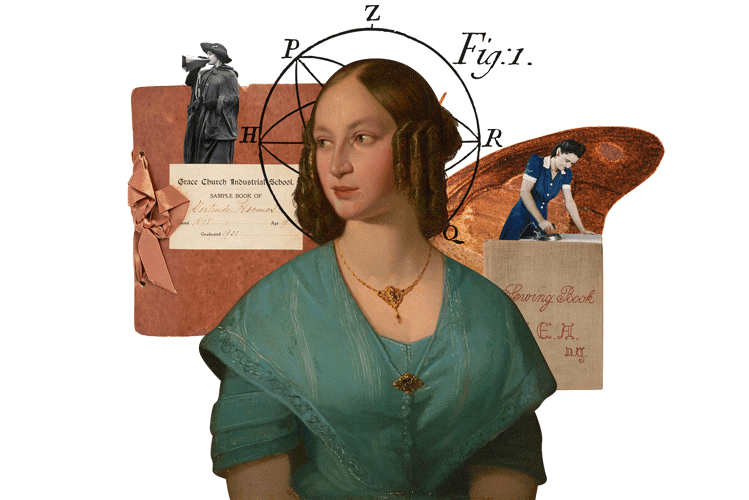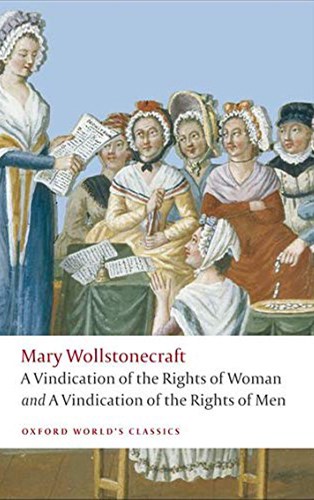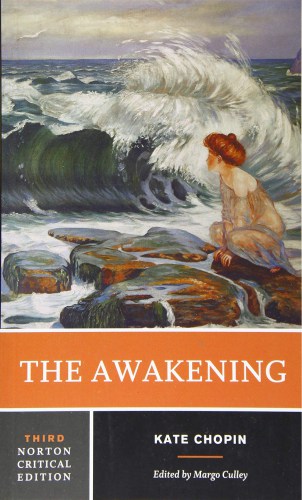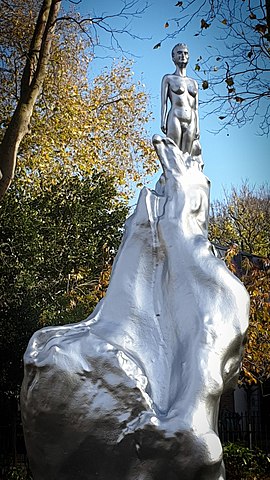My own sex, I hope, will excuse me, if I treat them like rational creatures, instead of flattering their fascinating graces, and viewing them as if they were in a state of perpetual childhood, unable to stand alone (73).
Mary Wollstonecraft

A Vindication of the Rights of Woman
Mary Wollstonecraft

A Vindication of the Rights of Woman, Oxford World’s Classics
It is considered to be one of the first works of feminist philosophy. The text focuses on reason and education.
Mary Wollstonecraft published A Vindication of the Rights of Woman in 1792. It is considered to be one of the first works of feminist philosophy. The text focuses on reason and education. To a modern audience, Wollstonecraft’s text may not seem very revolutionary, but it was in its time. She argued that women were rational creatures, capable of reason, and that an education was imperative for women to develop their capacity to reason, as it is for men. A modern reader would expect that an argument for education would be made to then argue for women to enter the workforce on equal footing with men, but this is where Wollstonecraft might disappoint a reader in the 21st century. She sees reason and education as essential components to marriage and motherhood. For its time, this was a transformative idea. Education and reason were pathways to marriages based on friendship and partnership instead of patriarchy and misogynistic beliefs. With an education, a woman could contribute to the development of her children’s minds, and of course ensure that daughters were also educated. Wollstonecraft’s Vindication, with its focus on reason, education, and partnership in marriage, sought to elevate women’s place in the family, an essential first step toward a more equal society.
Wollstonecraft, however, is also often criticized for her focus mainly on middle class women. She attempted to remedy this in her subsequent text, Maria: The Wrongs of Woman.
Why This Text is Transformative?
How does who I am affect how I am viewed in the world in which I live?

In A Vindication, Wollstonecraft asks questions that are part of the human experience. How does who I am affect how I am viewed in the world in which I live? What has shaped others’ understanding of who I am? What are the assumptions, biases, misconceptions that impact how the world sees me? Wollstonecraft’s text examines the repeating social patterns that have led to the belief that women do not possess reason and that their singular purpose and potential is to be attractive and beautiful. While she does not take the major leap to make a case for women’s equality in the public sphere, she argues for their shared place in marriage and in the family. She draws on the thinking of the enlightenment to make the case that education is essential to women reaching their potential as rational and therefore virtuous wives and mothers.
A Focused Selection
Study Questions

What is the purpose of an education? Why are you pursuing your degree? What do you hope to achieve through your education?
What are the failures in the education system that Wollstonecraft identifies in her text? Are there still failures in our education system? If so, what are they? Who is disadvantaged by them?
If you could improve our education system, what would you change? Why?
In her text, Wollstonecraft examines some of the stereotypes associated with women and with men. What are stereotypes? What do they do? Can you think of any current stereotypes that are potentially harmful in our modern age?
Wollstonecraft writes, “men endeavor to sink us still lower, merely to render us alluring objects for a moment; and women, intoxicated by the adoration which men under the influence of their senses pay them, do not seek to obtain a durable interest in their hearts, or to become the friends of fellow creatures who find amusement in their society” (Wollstonecraft 72). What does this mean? Do you think this is still a problem in our modern society? If so, why or why not?
Wollstonecraft writes, “Women are, in fact, so much degraded by mistaken notions of female excellence, that I do not mean to add a paradox when I assert, that this artificial weakness produces a propensity to tyrannize, and gives birth to cunning, the natural opponent of strength, which leads them to play off those contemptible infantine airs that undermine esteem even whilst they excite desire” (Wollstonecraft 75). How can a notion of your excellence degrade you? What does Wollstonecraft mean by this? Can you think of any examples of how “mistaken notions of excellence” can actually lead to someone’s degradation?
Wollstonecraft talks extensively about marriage and motherhood, especially in chapter 3. She sees reason and friendship as the cornerstones of a successful marriage. Why does she say this? Do you agree? What do you think are the key components of a successful marriage and family? Why? Do you think a successful relationship can exist without reason?
When you think about the qualities that go along with successful motherhood, do you typically think of reason and virtue? What do these terms mean? Why does Wollstonecraft feel these are essential to child rearing? Would you agree that these are important qualities for a parent to have? Why or why not?
Building Bridges
A Recommended Pairing

A Vindication of the Rights of Woman pairs well with Kate Chopin’s The Awakening. How does Wollstonecraft’s text provide us with a lens to understand Edna and Leonce’s marriage? How does Wollstonecraft’s discussion of virtue, reason, and education help to explain Edna’s sense of dissatisfaction with her life as well as the failures she meets with in her relationships? Do any of Wollstonecraft’s warnings about an uneducated mother resonate in Chopin’s depiction of Edna?
Supplemental Resources

A Sculpture to Mary Wollstonecraft in Newington Green, London. It was sculpted by British artist Maggi Hambling. It was unveiled on November 10, 2020.By Grim23 - Own work, CC BY-SA 4.0
What did Mary Wollstonecraft write about in A Vindication of the Rights of Woman?
Dangerous Minds Episode 4 - Mary Wollstonecraft
Text Mapping
Discipline Mapping
English/Composition Studies
Humanities
Sociology
Area Studies
Page Contributor



